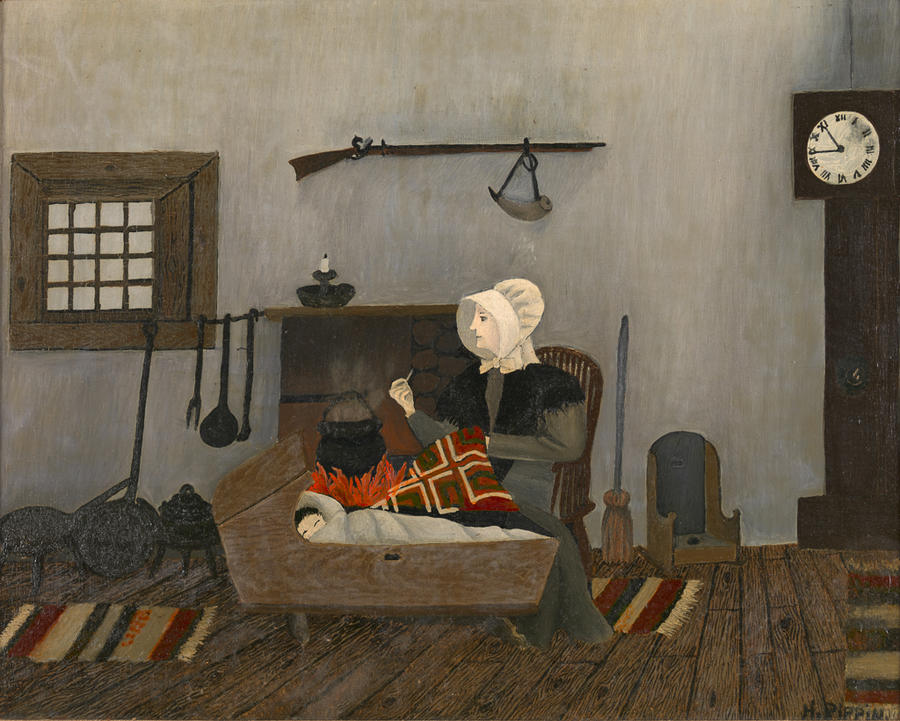" it is left to the free gift of God to choose any whom he sees meet thereunto, whether rich or poor, servant or master, young or old, yea male or female."
The words may not seems so dramatic in the present day but in the 17th century, during the Restoration period, the distinction between classes was sharply marked, In particular the subservience of servant to master and woman to man in the workplace, family and society was taken for granted and often strictly enforced. The idea that God might choose to address a master through a his servant of a man through a woman was revolutionary. It didn't just call into question the restored hierarchy headed by the king; it was akin to the levelling movements that had been suppressed during the Commonwealth period under Cromwell.
But Barclay goes further in a passage I eventually found in Barclay's Apology online, and which I'm quoting here at greater length than George Gorman does:
"in our day God hath raised up witnesses for himself, as he did fishermen of old, many, yea most of whom are labouring and mechanic men, who, altogether without that learning, have by the power and Spirit of God struck at the very root and ground of Babylon, and in the strength and might of this power have gathered thousands, by reaching their consciences, into the same power and life; who, as to the outward part, have been far more knowing than they, yet not able to resist the virtue that proceeded from them. Of which I myself am a true witness, and can declare from a certain experience, because my heart hath been often greatly broken and tendered by that virtuous Life that proceeded from the powerful ministry of those illiterate men: so that by their very countenance, as well as words, I have felt the evil in me often chained down and the good reached to and raised."
This startled me because it indicates something which I haven't, to my recollection, heard said in Quaker circles: that the majority of God's witnesses in the 17th century - by which Barclay almost certainly means Quakers - were members of the "labouring and mechanic" class. In other words, they were manual workers. Barclay goes on to say that he has direct experience of their ministry, and it has had a powerful effect on his faith, life and actions.
I wonder how many Quakers today can say that they have responded like this to the ministry of working-class people.
I could extend this to wonder how many Quakers today can say that their lives have been changed, as Barclay's was, by the active presence of exploited, despised and marginalised people in their Meeting. Are there any Meetings in Britain today where the most frequent and most effective ministry comes from people who are poor?
We are missing a great deal of ministry - and it may be ministry that would, in Barclay's words, break and tender us - and by tendering he means softening us, making us tender to the call of the Spirit and the needs of others.
It's worth imagining what a Quaker Meeting might be like if we regularly received ministry arising, through the Spirit, from the lived experience of queuing at a food bank, or from fearing the loss of insecure housing or casual work. Ministry may arrive through an individual but it speaks through that individual's experience, knowledge and understanding, just as it uses that individual's words and language. Let's go further and imagine that all Meetings in Britain included a number of members who shared their experience of homelessness or, like many Black youths and adults, of being regularly stopped and searched by the police. Suppose most members of Quaker Meetings experienced, on an almost daily basis, the casual cruelty of a society that looked down on them and treated them as people of little worth. I wonder what Quaker Meetings for Worship would be like if that were the case, and whether we would, in such circumstances, build a stronger community and draw closer to the Light.


.jpg)






_p11_STATUE_OF_WILLIAM_PENN.jpg?download)
